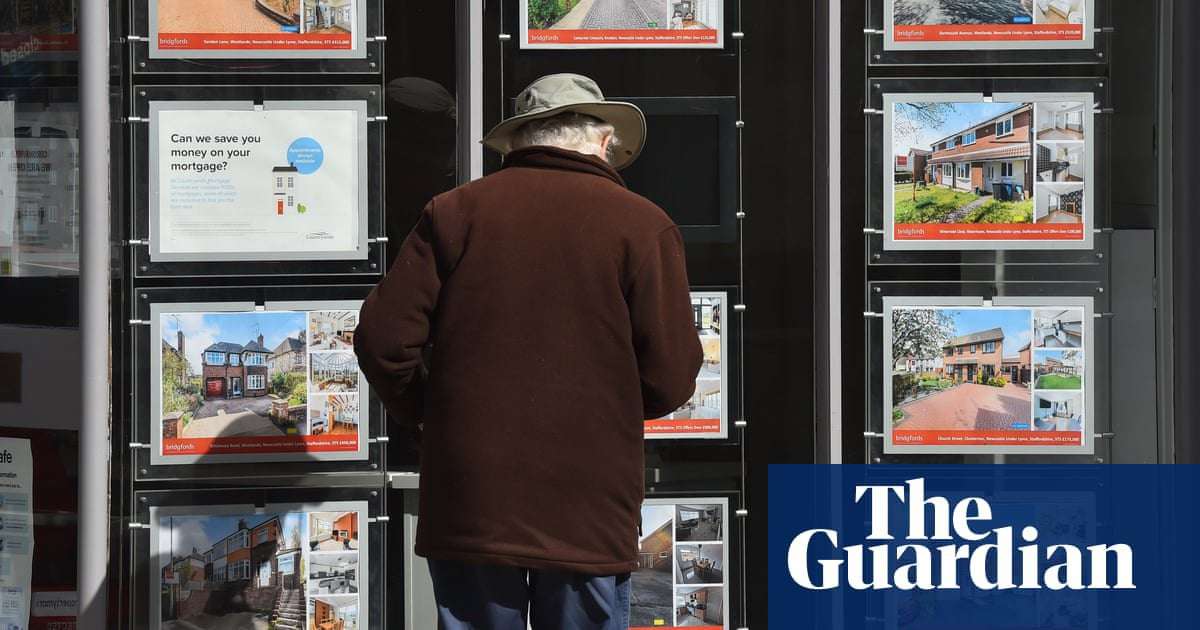The average asking price of homes coming on to the UK property market hit a high of a third of a million pounds in May, according to figures from the listings website Rightmove.
The average asking price has increased by 1.8%, or £5,767, over the past month to £333,564, the website said, with an “unexpected mini-boom” that started last year continuing well into 2021.
The property market has been buoyed up by the stamp duty holiday, which was launched last summer and is being phased out in England and Northern Ireland in two stages starting at the end of June. At that point the current starting threshold of £500,000 will fall to £250,000, except for first-time buyers.
Demand for large homes has also increased in a “race for space” as people have adjusted their lifestyles during the pandemic.
An imbalance between supply and demand in some areas of the country has put pressure on stock and allowed sellers to ask higher prices for their homes.
Rightmove said average asking prices had increased most rapidly in Wales and the north-west of England, with increases of 13% and 11%, respectively, since the first lockdown in March 2020.
Asking prices in London were up by just 0.2%. Although at £640,373 they remain almost three times higher than in the north of the country, Rightmove said the ratio was the smallest it had measured since 2013.
Tim Bannister, the site’s director of property data said: “Buyer affordability is increasingly stretched, but there’s obviously some elasticity left to stretch a bit more as many buyers are squeezing their way into higher price bands.”
He said there was both willingness and ability to pay more among buyers.
“There appears to be more headroom in buyers’ budgets among those looking to upsize. Family homes with three bedrooms or more are like gold dust in many areas of the country, especially in parts of the north,” he said.
Mark Manning, the managing director of Yorkshire-based estate agency Manning Stainton, said there was a continued surge in the volume of new buyers entering the market across the region.
Sign up to the daily Business Today email
Rightmove data shows the average asking price in Yorkshire and the Humber has risen by 1.2% over the past month, and is 10.5% higher than in March 2020, at £216,614.
Manning said: “Of particular note is the vast number of those buyers arriving from other destinations around the country, particularly the south.
“This surge in buyer activity combined with a relative shortage of new properties coming to market has had the inevitable effect of creating a significant surge in prices with buyers clamouring to get their hands on most listings that hit the market.”

Northernhills on May 17th, 2021 at 08:55 UTC »
I live in Essex in an area that's become a bit of a hotspot for people leaving the city. (On the coast 50 minute train to London)
The market is absolutely insane, there is a large house on our street that sold for £700k 2 years ago. It went on for £900k a couple of weeks ago, my wife and both agreed that was ridiculous and it would sit.
They did an open day last weekend it, it was wall to wall viewings and sold by the Monday, spoke to the owner and even he couldn't believe it.
I honestly don't know where this ends as the government have such a vested interest in keeping interest rates low and house prices high but it must be unsustainable at this point.
GabberZZ on May 17th, 2021 at 07:46 UTC »
We're trying to move to a larger house nearby but theres either no houses for sale or they are all £50k more than they were worth 12 months ago.
Estate agent told us the stock of non new build houses collectively in my town was typically 750. There's less than 100 for sale at the moment.
Only ones for sale are in the 5 or 6 new build developments that are 'out of town' or on horribly cramped locations.
Colaseac on May 17th, 2021 at 05:14 UTC »
If you're single or part of a low income couple, you’re screwed: even worse if you live in the south